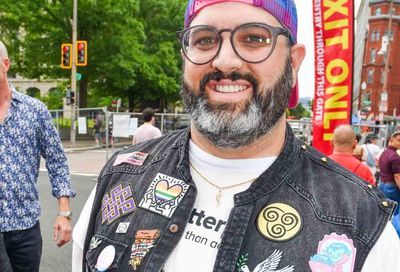Federal appeals court rules Idaho must pay for transgender inmate’s gender confirmation surgery
Court finds denying Adree Edmo surgery to treat her gender dysphoria constitutes "cruel and unusual punishment"

The 9th U.S. Circuit Court of Appeals has ruled that the state of Idaho must foot the bill for gender confirmation surgery for a transgender inmate at the Idaho State Correctional Center.
The decision upholds a lower court ruling that the Idaho Department of Correction and its medical provider, Corizon LLC, discriminated against inmate Adree Edmo, a 31-year-old Native American trans woman serving a three- to 10-year sentence for sexual abuse of a child under the age of 16, when it refused to provide her with gender confirmation surgery to treat her gender dysphoria.
Despite repeated attempts by Edmo to argue that the surgery is essential to treating her gender dysphoria, the Department of Correction and Corizon have refused to provide the surgery for the past five years. Edmo claims this has caused her significant distress, leading her to attempt self-castration and begin cutting herself to relieve emotional pain.
Edmo’s lawyers, with the National Center for Lesbian Rights, sued in 2017, alleging that the denial of care violated her Eighth Amendment rights. U.S. District Court Judge B. Lynn Winmill ruled in Edmo’s favor and ordered the state to provide the procedure. But the state appealed to the 9th Circuit.
In its decision, the 9th Circuit found that denying the surgery amounted to cruel and unusual punishment, as Edmo’s gender dysphoria is so severe it impairs her ability to function.
“We apply the dictates of the Eighth Amendment today in an area of increased social awareness: transgender health care,” the court wrote in its opinion. “We are not the first to speak on the subject, nor will we be the last. Our court and others have been considering Eighth Amendment claims brought by transgender prisoners for decades. During that time, the medical community’s understanding of what treatments are safe and medically necessary to treat gender dysphoria has changed as more information becomes available, research is undertaken, and experience is gained.
“We hold that where, as here, the record shows that the medically necessary treatment for a prisoner’s gender dysphoria is gender confirmation surgery, and responsible prison officials deny such treatment with full awareness of the prisoner’s suffering, those officials violate the Eighth Amendment’s prohibition on cruel and unusual punishment.”
Idaho Gov. Brad Little (R) has said the state will appeal to the U.S. Supreme Court.
“The court’s decision is extremely disappointing,” Little said in a written statement, as reported by the Idaho Statesman. “The hardworking taxpayers of Idaho should not be forced to pay for a convicted sex offender’s gender reassignment surgery when it is contrary to the medical opinions of the treating physician and multiple mental health professionals. … We cannot divert critical public dollars away from the higher priorities of keeping the public safe and rehabilitating offenders.”
A spokesman for the Idaho Department of Correction told the Statesman that the department is still reviewing the ruling and has no comment at this time.
Edmo issued a statement saying she was “relieved and grateful” that the court recognized her right to receive medically necessary surgery, and hoped her case would help other trans inmates facing similar obstacles.
“Today’s ruling affirms that state officials cannot pick and choose which serious medical conditions they will treat,” Lori Rifkin, the lead attorney for Edmo, said in a statement. “Intentionally depriving someone of medically necessary care amounts to cruel and unusual punishment, regardless of gender identity.”
“One of the foundational principles of our Constitution is that the State cannot subject people in its custody to cruel and unusual punishment, including by failing to treat serious medical conditions,” Amy Whelan, a senior staff attorney for the National Center for Lesbian Rights, said in a statement. “This ruling is in line not only with long-standing medical evidence, but also with legal rulings across the country that it is dangerous and unconstitutional to deny transgender people access to medically necessary care in prison.”
Read more:
Gay couples can sue Kim Davis for denying them marriage licenses, federal court rules
WATCH: Log Cabin Republicans defend Trump endorsement with bizarre argument
Support Metro Weekly’s Journalism
These are challenging times for news organizations. And yet it’s crucial we stay active and provide vital resources and information to both our local readers and the world. So won’t you please take a moment and consider supporting Metro Weekly with a membership? For as little as $5 a month, you can help ensure Metro Weekly magazine and MetroWeekly.com remain free, viable resources as we provide the best, most diverse, culturally-resonant LGBTQ coverage in both the D.C. region and around the world. Memberships come with exclusive perks and discounts, your own personal digital delivery of each week’s magazine (and an archive), access to our Member's Lounge when it launches this fall, and exclusive members-only items like Metro Weekly Membership Mugs and Tote Bags! Check out all our membership levels here and please join us today!

























You must be logged in to post a comment.